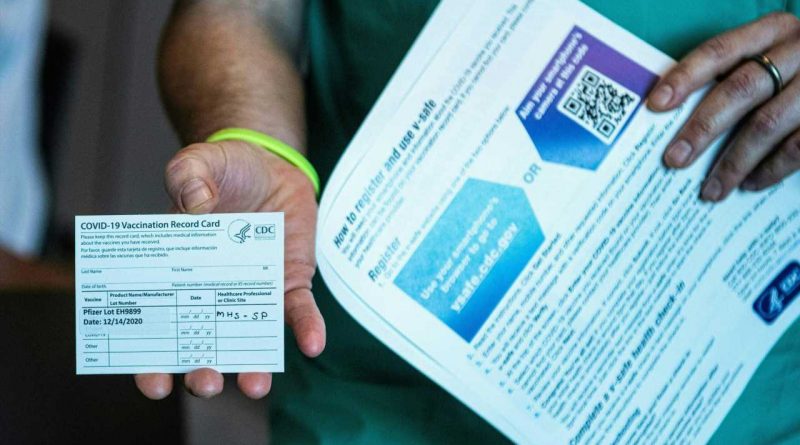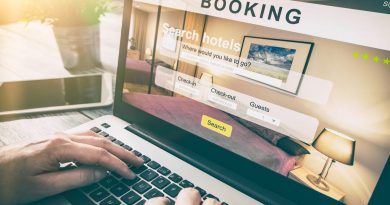You finally got vaccinated: Here’s what you’ll need for a digital health passport
Load Error
More than 49 million Americans have received the first dose of a COVID-19 vaccine, and nearly 25 million have been fully vaccinated, according to the U.S. Centers for Disease Control and Prevention (CDC).
If you’re one of the millions who has been vaccinated against COVID-19, you’re probably thinking, “now what?” — especially if you’re itching to hit the road.
Travelers may need to use digital health (vaccine) passports to enter certain countries, take certain cruises and tours or be exempt from strict testing and quarantine requirements. They will be a key part of the travel experience moving forward. But to use a health passport, what types of documentation will you need?
The World Health Organization (WHO) told TPG in December it was “exploring how the common vaccination record could be done electronically.” A few months later, we’re not yet close to a standardized system. In the meantime, here are the steps you should take after getting vaccinated so you can use a digital health passport when you’re ready to travel.
For more TPG news delivered each morning to your inbox, sign up for our daily newsletter.
test results and vaccine records
A digital health passport, such as the Travel Pass app from the International Air Transport Association (IATA), will host verified test and vaccine information. IATA says its travel pass will be “more secure and efficient” than the paper form often used.
If you’re in the United States, you’ll often receive a physical paper card — called the COVID-19 Vaccination Record Card — from the U.S. Centers for Disease Control and Prevention (CDC) after being vaccinated. This card includes medical information about the vaccine you received, the date of vaccination and where you were vaccinated. However, this card really is only a reminder for your follow-up vaccine appointment.
Many destinations also require you to have a negative coronavirus test prior to arrival, and you’ll need a negative test to fly into the U.S. from abroad. Most coronavirus testing facilities offer paper or online results. But some testing sites only share results over the phone, which likely won’t work if you’re trying to upload your status into a mobile health passport.
The Royal Society, the independent scientific academy of the United Kingdom, created 12 criteria for vaccine passports, including ensuring that the platform is secure and accommodates differences between vaccines in their efficacy and changes in vaccine efficacy against coronavirus variants.
“Current evidence suggests that a COVID-19 vaccine passport system is feasible, but that not all criteria have yet been satisfied,” the Royal Society wrote.
Import and verify your information
Countries such as Iceland and Thailand may soon allow any traveler who has been vaccinated to skip quarantine — if you can prove it, that is.
Several health passport providers say getting your vaccine status or negative test results onto their apps will be simple.
“You would take a picture, which would, in this case, be a CDC vaccination card with your name on it,” Nick Careen, IATA’s senior vice president of airport, passenger, cargo and security, told TPG. “We would need to verify that against your digital credential that had been created in the app to make sure that the content is accurate.”
There are real concerns in the travel and technology communities that some travelers might try to fake negative coronavirus results or COVID-19 vaccines.
According to Careen, travel passport providers won’t set the criteria to verify results or vaccination status. Those rules, he says, are set by individual governments — though it’s not clear yet how verification will be standardized in the United States or worldwide.
Louis-James Davis, the CEO at VST Enterprises, who is creating a health passport, says his app won’t even use QR codes to verify test results or vaccine status. The app, called the V-Health Passport, will use its own technology instead of QR codes, which he says can be faked, especially at large events where staff members aren’t trained to spot them.
“Ten people could turn up with the same health pass [QR code], and it would be down to the security guard to check them off, which doesn’t help with [the] ingress of large crowds,” Davis said.
Keep your vaccine card safe
This should go without saying, but you don’t want to lose your vaccination card.
“Treat it like you would treat your driver’s license or your credit cards or your passport, anything that is high value,” said Steve Swasey, the vice president of communications at Healthline (which is also owned by TPG’s parent company, Red Ventures). “Even though it’s a low profile, small piece of paper, it’s an extraordinarily high value for you as a person to be able to travel.”
Until there’s a universal verification tool, Swasey says he’ll be wearing a sticker he received after being vaccinated, which he plans to laminate when he hits the road.
The CDC recommends that vaccine administrators record vaccine information in a patient’s medical record. All COVID-19 vaccination providers are required to report data within 72 hours in their state’s immunization system.
So, there will likely be a back-up record of your vaccination status. In the event you do lose your card, it wouldn’t hurt to give the facility that administered your injection a call.
Bottom line
While digital health or vaccine passports are expected to be optional, experts say they will be widely used in the travel industry and at other large gatherings, such as sporting events. That means you’ll want to keep your vaccine status or negative COVID-19 results in a safe place, which will make it easier to import them into a health passport or vaccine passport when you’re ready to get back out there.
Featured photo by CHANDAN KHANNA/AFP
SPONSORED: With states reopening, enjoying a meal from a restaurant no longer just means curbside pickup.
And when you do spend on dining, you should use a credit card that will maximize your rewards and potentially even score special discounts. Thanks to temporary card bonuses and changes due to coronavirus, you may even be able to score a meal at your favorite restaurant for free.
These are the best credit cards for dining out, taking out, and ordering in to maximize every meal purchase.
—
Editorial Disclaimer: Opinions expressed here are the author’s alone, not those of any bank, credit card issuer, airlines or hotel chain, and have not been reviewed, approved or otherwise endorsed by any of these entities.
Source: Read Full Article




